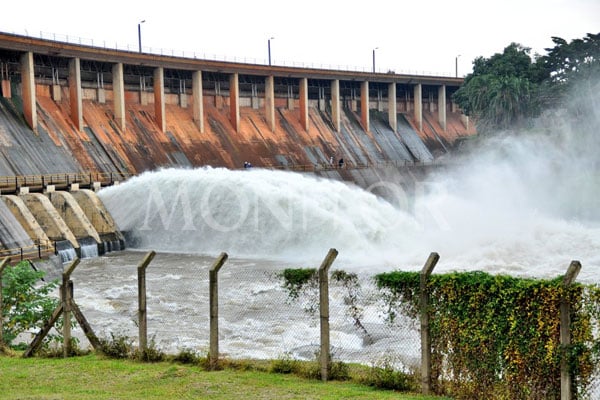Prime
Govt suggests it will not renew Eskom’s contract

UEGCL is likely to take over operations of Kira and Nalubaale power dams in the event that government does not renew the Eskom concession. PHOTO | FILE
What you need to know:
- Energy Minister Ruth Nankabirwa, while presiding over the hand over of Jacobsen assets to government, told Uganda Electricity Generation Company Limited to prepare to take over operations of Kira and Nalubaale power dams.
Energy Minister Ruth Nankabirwa has asked Uganda Electricity Generation Company Limited (UEGCL) to prepare to take over operations at Kira and Nalubaale power dams in Jinja District.
The dams are operated by South African energy company - Eskom - on behalf of UEGCL under a 20-year concession, which expires in June next year.
Speaking at the handover of the Namanve Thermal Power Plant also known as Jacobsen in Namanve, Mukono District, Ms Nankabirwa said UEGCL should prepare to take over Nalubaale and Kira next year when the two dams revert to government.
However, she did not give further details but noted government was in the process of retiring a number of concessions in the electricity subsector.
This, sector players have indicated, suggests that government will not be renewing Eskom’s concession.
In 2002, government entered into a concession with Eskom to operate and maintain Nalubaale and Kira dams.
Under the concession, negotiations for a renewal had been expected to take place within three years to the end of the concession, which currently has less than a year.
However, government has been silent on the possibility of a renewal and no commitment has so far been done to suggest otherwise.
In March, former Energy State Minister Simon D’ujanga, told Daily Monitor that government had not yet entered into discussions with Eskom, noting that: “I cannot say it [concession] will be renewed”.
During the handover of Jacobsen assets, Ms Nankabirwa said that when she joined the Ministry of Energy, she had been told that the concession between Jacobsen and government had expired on September 15. However, transfer of assets had been delayed due to financial obligations, among which included compensating Jacobsen the money spent on buying land unused fuel and spare parts.
“When September 15 came, we realised there was a lot to be done. [However,] today were are actualising the transfer,” she said, noting that government had developed a lot of capacity in the energy, which, after all concessions are retired, will help in reduction of electricity tariffs.
Government officials, among them President Museveni, have been blaming high electricity tariffs on “middlemen” in the generation and distribution subsectors.
Mr Harisson Mutikanga, the UEGCL chief executive officer, said after Ms Nankabirwa had taken over office, she pledged to get rid of “middlemen in the energy sector to keep electricity tariffs affordable”, which echoes President Museveni’s concern over of other companies operating energy infrastructure on behalf of government.
“I know you [Ms Nankabirwa] have worked under a lot of pressure to deliver this plant to us today. When you came to office, the first thing you pledged was to get rid of middlemen in the energy sector … we thank you that you have fulfilled your promise,” he said.
About Jacobsen power plant
The Jacobsen power plant, which was handed over, is an emergency power supply plant built under a 13-year concession agreement between government and Jacobsen.
The plant was built under a build, own, operate the asset until you recoup your investment arrangement, after which the assets are transferred to government.
Mr George Rwabajungu, the Uganda Electricity Transmission Company Limited chief executive officer, said between 2010 and 2011, when Uganda faced shortages in energy supply, the Namanve power plant, which has six heavy fuel generators, was producing 50 megawatts of electricity for 24 hours over a period of four years.




